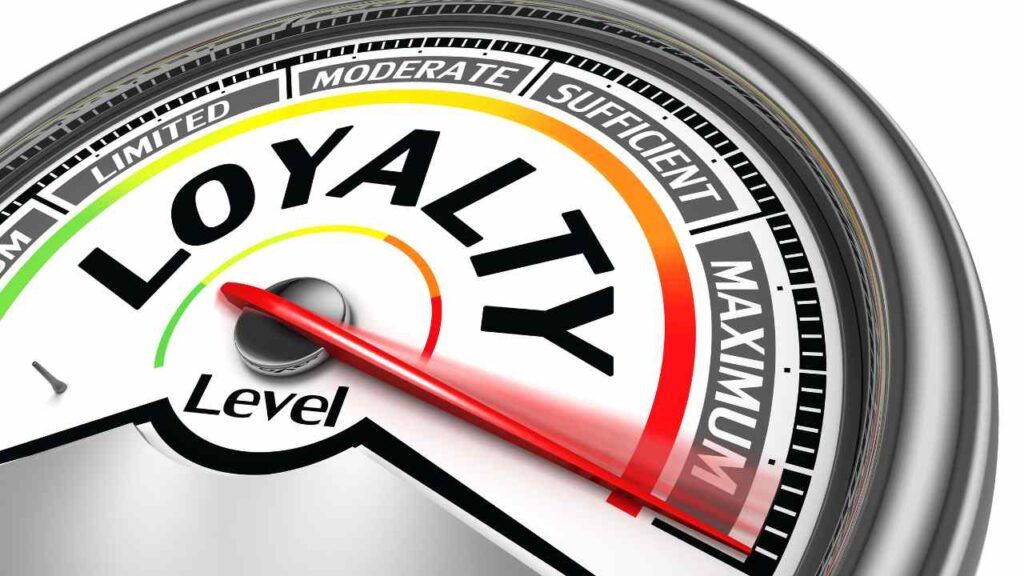Measuring the Impact of CRM on Brand Loyalty

Customer Relationship Management (CRM) has become an essential tool for businesses in today’s competitive market. It allows companies to manage their interactions with customers, streamline processes, and improve overall customer satisfaction. One of the key benefits of CRM is its potential to enhance brand loyalty. In this article, we will explore the impact of CRM on brand loyalty and discuss various methods to measure this impact.
Understanding Brand Loyalty
Brand loyalty refers to the degree to which customers are committed to a particular brand and are willing to repeatedly purchase its products or services. It is a crucial factor for businesses as it leads to repeat purchases, positive word-of-mouth, and increased customer lifetime value. Building brand loyalty requires consistent delivery of high-quality products or services, effective communication, and a positive customer experience.
The Role of CRM in Building Brand Loyalty
CRM plays a significant role in building brand loyalty by enabling businesses to better understand their customers, personalize interactions, and provide exceptional customer service. Here are some ways CRM contributes to brand loyalty:
- Customer Data Management: CRM systems allow businesses to collect and organize customer data, including purchase history, preferences, and demographics. This data provides valuable insights into customer behavior and helps businesses tailor their offerings to meet individual needs.
- Personalization: By leveraging customer data, CRM enables businesses to personalize their marketing messages, offers, and customer interactions. Personalization creates a sense of exclusivity and makes customers feel valued, leading to increased brand loyalty.
- Improved Customer Service: CRM systems streamline customer service processes by centralizing customer information and interactions. This allows businesses to provide timely and personalized support, resolving issues efficiently and enhancing customer satisfaction.
- Targeted Marketing: CRM helps businesses identify their most valuable customers and target them with relevant marketing campaigns. By delivering personalized and targeted messages, businesses can strengthen their relationship with customers and increase brand loyalty.
Measuring the Impact of CRM on Brand Loyalty
Measuring the impact of CRM on brand loyalty is essential to understand the effectiveness of CRM strategies and make data-driven decisions. Here are some methods to measure this impact:
1. Customer Satisfaction Surveys
Customer satisfaction surveys are a common method to measure the impact of CRM on brand loyalty. These surveys collect feedback from customers regarding their experience with the brand, including their satisfaction with the products or services, customer service, and overall brand perception. By comparing survey results before and after implementing CRM, businesses can assess the impact on brand loyalty.
2. Net Promoter Score (NPS)
NPS is a widely used metric to measure customer loyalty and brand advocacy. It measures the likelihood of customers recommending a brand to others on a scale of 0 to 10. By tracking NPS over time, businesses can evaluate the impact of CRM on brand loyalty. Higher NPS scores indicate increased brand loyalty and customer satisfaction.
3. Repeat Purchase Rate
Repeat purchase rate is another important metric to measure brand loyalty. CRM systems track customer purchase history, allowing businesses to analyze the percentage of customers who make repeat purchases. An increase in the repeat purchase rate indicates improved brand loyalty, as customers are choosing to repeatedly engage with the brand.
4. Customer Lifetime Value (CLV)
CLV is a metric that calculates the total value a customer brings to a business over their lifetime. CRM systems provide insights into customer behavior, allowing businesses to estimate CLV accurately. By comparing CLV before and after implementing CRM, businesses can determine the impact on brand loyalty. Higher CLV indicates increased brand loyalty and customer retention.
Case Study: XYZ Corporation
Let’s take a look at a case study to understand how CRM can impact brand loyalty. XYZ Corporation, a leading e-commerce company, implemented a CRM system to enhance customer relationships and improve brand loyalty. They measured the impact using the methods discussed above:
- Customer satisfaction surveys showed a significant increase in customer satisfaction scores after implementing CRM. This indicated that CRM positively impacted brand loyalty by improving the overall customer experience.
- NPS scores increased by 15% within six months of implementing CRM. This indicated that customers were more likely to recommend the brand to others, showcasing improved brand loyalty.
- The repeat purchase rate increased by 20% after implementing CRM. This indicated that customers were more engaged with the brand and more likely to make repeat purchases.
- CLV increased by 25% within a year of implementing CRM. This indicated that customers were spending more over their lifetime, highlighting improved brand loyalty and customer retention.
CRM plays a crucial role in building brand loyalty by enabling businesses to understand their customers, personalize interactions, and provide exceptional customer service. Measuring the impact of CRM on brand loyalty is essential to evaluate the effectiveness of CRM strategies. Methods such as customer satisfaction surveys, NPS, repeat purchase rate, and CLV can provide valuable insights into the impact of CRM. By leveraging CRM effectively, businesses can enhance brand loyalty, drive customer retention, and achieve long-term success.
Visit https://SaasExpert.ca – Your All-In-One Sales and Marketing Platform for small businesses, agency owners, and marketers.
Learn more about “Creating Brand Avocates with CRM Data” right here.
Frequently asked questions about Measuring the Impact of CRM on Brand Loyalty.

1️⃣ How Do I Know If My CRM is Actually Increasing Brand Loyalty?
Answer: Great question! To measure the impact of CRM on brand loyalty, you’ll want to focus on key performance indicators (KPIs) like Customer Retention Rate, Customer Lifetime Value, and Net Promoter Score. 📈
But here’s where CRM spices things up: it allows you to segment these metrics! 🌶️ You can view them based on various categories—think age group, geographical location, or purchase behavior. This means you’re not just shooting in the dark; you’re using data-driven insights to connect the dots and see the tangible impact on loyalty. 🔍
2️⃣ Can CRM Help Me Measure Customer Satisfaction Levels?
Answer: Oh, you bet! 👍 Customer satisfaction is a huge part of brand loyalty, and your CRM can help you keep tabs on this through customer surveys, feedback forms, and direct communications. You can even automate these processes, so they’re delivered at critical touchpoints—like after a purchase or a customer service interaction.
Remember, a happy customer is a loyal customer. And with CRM, you can measure and quantify that happiness like never before. 🌟
3️⃣ How Can I Use CRM to Track the Effectiveness of My Loyalty Programs?
Answer: Loyalty programs are fantastic for boosting brand loyalty, but how do you know they’re working? Enter CRM stage right! 🎭
By tracking metrics like redemption rates, participation levels, and ROI specific to your loyalty programs, CRM gives you the data to understand if you’re actually creating loyalty or just giving away free stuff. 🤷♀️ The goal is to find a program that not only engages customers but also creates a sense of emotional connection to your brand. ❤️
4️⃣ Can CRM Help Me Identify and Nurture Brand Advocates?
Answer: Absolutely! One of the most potent signs of brand loyalty is advocacy. 🗣️ Your CRM can identify these MVPs through metrics like frequency of purchases, high engagement rates, and social sharing activity.
Once you know who your brand advocates are, use your CRM to nurture them—think personalized messages, exclusive offers, and sneak peeks into new products. Not only does this reward them for their loyalty, but it also encourages them to spread the word even more. It’s a win-win! 🏆
5️⃣ Is It Possible to Track the ROI of My CRM System in Terms of Brand Loyalty?
Answer: The million-dollar question! 🤑 And yes, you absolutely can track ROI when it comes to CRM and brand loyalty. Here’s how: Use your CRM to measure both tangible gains (increased sales, higher Customer Lifetime Value) and intangible ones (brand equity, customer satisfaction levels).
By attributing these metrics back to your CRM initiatives—be it email marketing campaigns, loyalty programs, or customer feedback mechanisms—you can actually see the return on your CRM investment in black and white. 📊
- crm
- customer relationship management
- Measuring the Impact of CRM on Brand Loyalty
- What is CRM Software?






